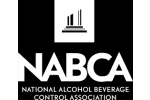This interdisciplinary session equips law enforcement officers, school administrators, and scientists with a scientific and practical foundation on substances most often implicated in impaired driving. It covers alcohol and both traditional and emerging cannabinoids, focusing on pharmacodynamics, pharmacokinetics, formulations, and real-world driving impact. Participants will learn to assess current data and understand detection limitations, public trends, and toxicological challenges. Through evidence-based instruction and case analysis, this session enhances enforcement, institutional safety, and research-informed decision-making.
Who Should Attend:
- Law enforcement practitioners, including those involved with ARIDE and DRE programs, seeking deeper understanding of drug-related impairment and enforcement strategies
- School and institutional administrators responsible for safety policy, substance use interventions, and response planning
- Scientists, forensic toxicologists, and researchers engaged in impaired driving investigations, testing development, or policy evaluation
Key Features:
- Case study–driven and interdisciplinary format, blending pharmacology, policy, behavioral science, and field applications
- Focus on emerging substances and poly-use trends, including novel cannabinoids
- Discussion on analytical challenges, detection limits, and forensic reporting in biological sampling
- Actionable outcomes tailored to enhance enforcement efficacy, toxicological interpretation, and institutional safety strategies
Learning Outcomes:
By the end of this session, participants will be able to:
- Define basic pharmacology and toxicology principles applicable to alcohol and drugs commonly seen in impaired-driving cases.
- Discuss detection and prevalence trends for alcohol and both traditional and emerging cannabinoids.
- Critically appraise current scientific data on substance effects on driving, including pharmacokinetics, pharmacodynamics, and formulation differences.
- Describe the common challenges faced by the public (e.g. new products, user behavior) and professionals (e.g. toxicologists, enforcement) in identifying impairment from biological evidence.










